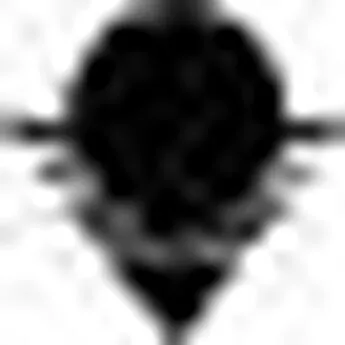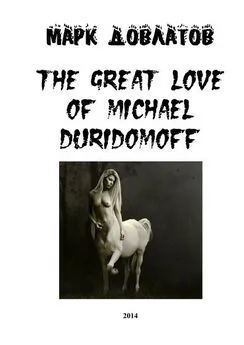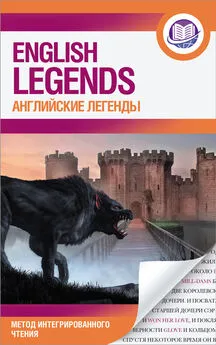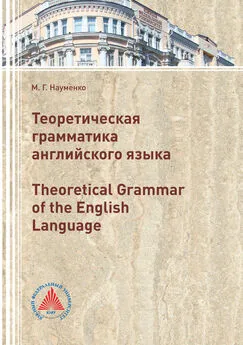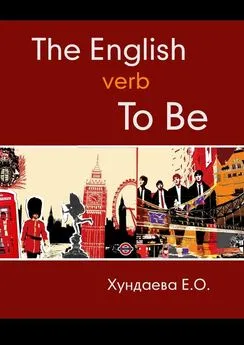Michael Ondaatje - The English Patient
- Название:The English Patient
- Автор:
- Жанр:
- Издательство:неизвестно
- Год:неизвестен
- ISBN:нет данных
- Рейтинг:
- Избранное:Добавить в избранное
-
Отзывы:
-
Ваша оценка:
Michael Ondaatje - The English Patient краткое содержание
The English Patient - читать онлайн бесплатно полную версию (весь текст целиком)
Интервал:
Закладка:
From outside, the place seemed devastated. An outdoor staircase disappeared in midair, its railing hanging off. Their life was foraging and tentative safety. They used only essential candlelight at night because of the brigands who annihilated everything they came across. They were protected by the simple fact that the villa seemed a ruin. But she felt safe here, half adult and half child. Coming out of what had happened to her during the war, she drew her own few rules to herself. She would not be ordered again or carry out duties for the greater good. She would care only for the burned patient. She would read to him and bathe him and give him his doses of morphine—her only communication was with him.
She worked in the garden and orchard. She carried the six-foot crucifix from the bombed chapel and used it to build a scarecrow above her seedbed, hanging empty sardine cans from it which clattered and clanked whenever the wind lifted. Within the villa she would step from rubble to a candlelit alcove where there was her neatly packed suitcase, which held little besides some letters, a few rolled-up clothes, a metal box of medical supplies. She had cleared just small sections of the villa, and all this she could burn down if she wished.
She lights a match in the dark hall and moves it onto the wick of the candle. Light lifts itself onto her shoulders. She is on her knees. She puts her hands on her thighs and breathes in the smell of the sulphur. She imagines she also breathes in light.
She moves backwards a few feet and with a piece of white chalk draws a rectangle onto the wood floor. Then continues backwards, drawing more rectangles, so there is a pyramid of them, single then double then single, her left hand braced flat on the floor, her head down, serious. She moves farther and farther away from the light. Till she leans back onto her heels and sits crouching.
She drops the chalk into the pocket of her dress. She stands and pulls up the looseness of her skirt and ties it around her waist. She pulls from another pocket a piece of metal and flings it out in front of her so it falls just beyond the farthest square.
She leaps forward, her legs smashing down, her shadow behind her curling into the depth of the hall. She is very quick, her tennis shoes skidding on the numbers she has drawn into each rectangle, one foot landing, then two feet, then one again, until she reaches the last square.
She bends down and picks up the piece of metal, pauses in that position, motionless, her skirt still tucked up above her thighs, hands hanging down loose, breathing hard. She takes a gulp of air and blows out the candle.
Now she is in darkness. Just a smell of smoke.
She leaps up and in midair turns so she lands facing the other way, then skips forward even wilder now down the black hall, still landing on squares she knows are there, her tennis shoes banging and slamming onto the dark floor—so the sound echoes out into the far reaches of the deserted Italian villa, out towards the moon and the scar of a ravine that half circles the building.
Sometimes at night the burned man hears a faint shudder in the building. He turns up his hearing aid to draw in a banging noise he still cannot interpret or place.
She picks up the notebook that lies on the small table beside his bed. It is the book he brought with him through the fire—a copy of The Histories by Herodotus that he has added to, cutting and gluing in pages from other books or writing in his own observations—so they all are cradled within the text of Herodotus.
She begins to read his small gnarled handwriting.
There is a whirlwind in southern Morocco, the aajej , against which the fellahin defend themselves with knives. There is the africo , which has at times reached into the city of Rome. The alm , a fall wind out of Yugoslavia. The arifi , also christened aref or rift , which scorches with numerous tongues. These are permanent winds that live in the present tense.
There are other, less constant winds that change direction, that can knock down horse and rider and realign themselves anticlockwise. The bist roz leaps into Afghanistan for 170 days—burying villages. There is the hot, dry ghibli from Tunis, which rolls and rolls and produces a nervous condition. The haboob— a Sudan dust storm that dresses in bright yellow walls a thousand metres high and is followed by rain. The harmattan , which blows and eventually drowns itself into the Atlantic, Imbat , a sea breeze in North Africa. Some winds that just sigh towards the sky. Night dust storms that come with the cold. The khamsin , a dust in Egypt from March to May, named after the Arabic word for “fifty,” blooming for fifty days—the ninth plague of Egypt. The datoo out of Gibraltar, which carries fragrance.
There is also the ________, the secret wind of the desert, whose name was erased by a king after his son died within it. And the nafliat —a blast out of Arabia. The mezzar-ifoullousen —a violent and cold southwesterly known to Berbers as “that which plucks the fowls.” The beshabar , a black and dry northeasterly out of the Caucasus, “black wind.” The Samiel from Turkey, “poison and wind,” used often in battle. As well as the other “poison winds,” the simoom , of North Africa, and the solano , whose dust plucks off rare petals, causing giddiness.
Other, private winds.
Travelling along the ground like a flood. Blasting off paint, throwing down telephone poles, transporting stones and statue heads. The harmattan blows across the Sahara filled with red dust, dust as fire, as flour, entering and coagulating in the locks of rifles. Mariners called this red wind the “sea of darkness.” Red sand fogs out of the Sahara were deposited as far north as Cornwall and Devon, producing showers of mud so great this was also mistaken for blood. “Blood rains were widely reported in Portugal and Spain in 1901.”
There are always millions of tons of dust in the air, just as there are millions of cubes of air in the earth and more living flesh in the soil (worms, beetles, underground creatures) than there is grazing and existing on it. Herodotus records the death of various armies engulfed in the simoom who were never seen again. One nation was “so enraged by this evil wind that they declared war on it and marched out in full battle array, only to be rapidly and completely interred.”
Dust storms in three shapes. The whirl. The column. The sheet. In the first the horizon is lost. In the second you are surrounded by “waltzing Ginns.” The third, the sheet, is “copper-tinted. Nature seems to be on fire. ”
She looks up from the book and sees his eyes on her. He begins to talk across the darkness.
The Bedouin were keeping me alive for a reason. I was useful, you see. Someone there had assumed I had a skill when my plane crashed in the desert. I am a man who can recognize an unnamed town by its skeletal shape on a map. I have always had information like a sea in me. I am a person who if left alone in someone’s home walks to the bookcase, pulls down a volume and inhales it. So history enters us. I knew maps of the sea floor, maps that depict weaknesses in the shield of the earth, charts painted on skin that contain the various routes of the Crusades.
So I knew their place before I crashed among them, knew when Alexander had traversed it in an earlier age, for this cause or that greed. I knew the customs of nomads besotted by silk or wells. One tribe dyed a whole valley floor, blackening it to increase convection and thereby the possibility of rainfall, and built high structures to pierce the belly of a cloud. There were some tribes who held up their open palm against the beginnings of wind. Who believed that if this was done at the right moment they could deflect a storm into an adjacent sphere of the desert, towards another, less loved tribe. There were continual drownings, tribes suddenly made historical with sand across their gasp.
In the desert it is easy to lose a sense of demarcation. When I came out of the air and crashed into the desert, into those troughs of yellow, all I kept thinking was, I must build a raft.… I must build a raft.
And here, though I was in the dry sands, I knew I was among water people.
In Tassili I have seen rock engravings from a time when the Sahara people hunted water horses from reed boats. In Wadi Sura I saw caves whose walls were covered with paintings of swimmers. Here there had been a lake. I could draw its shape on a wall for them. I could lead them to its edge, six thousand years ago.
Ask a mariner what is the oldest known sail, and he will describe a trapezoidal one hung from the mast of a reed boat that can be seen in rock drawings in Nubia. Pre-dynastic. Harpoons are still found in the desert. These were water people. Even today caravans look like a river. Still, today it is water who is the stranger here. Water is the exile, carried back in cans and flasks, the ghost between your hands and your mouth.
When I was lost among them, unsure of where I was, all I needed was the name of a small ridge, a local custom, a cell of this historical animal, and the map of the world would slide into place.
What did most of us know of such parts of Africa? The armies of the Nile moved back and forth—a battlefield eight hundred miles deep into the desert. Whippet tanks, Blenheim medium-range bombers. Gladiator biplane fighters. Eight thousand men. But who was the enemy? Who were the allies of this place—the fertile lands of Cyrenaica, the salt marshes of El Agheila? All of Europe were fighting their wars in North Africa, in Sidi Rezegh, in Baguoh.
He travelled on a skid behind the Bedouin for five days in darkness, the hood over his body. He lay within this oil-doused cloth. Then suddenly the temperature fell. They had reached the valley within the red high canyon walls, joining the rest of the desert’s water tribe that spilled and slid over sand and stones, their blue robes shifting like a spray of milk or a wing. They lifted the soft cloth off him, off the suck of his body. He was within the larger womb of the canyon. The buzzards high above them slipping down a thousand years into this crack of stone where they camped.
In the morning they took him to the far reach of the siq . They were talking loudly around him now. The dialect suddenly clarifying. He was here because of the buried guns.
He was carried towards something, his blindfolded face looking straight ahead, and his hand made to reach out a yard or so. After days of travel, to move this one yard. To lean towards and touch something with a purpose, his arm still held, his palm facing down and open. He touched the Sten barrel and the hand let go of him. A pause among the voices. He was there to translate the guns.
‘Twelve-millimetre Breda machine gun. From Italy.”
He pulled back the bolt, inserted his finger to find no bullet, pushed it back and pulled the trigger. Puht . “Famous gun,” he muttered. He was moved forward again.
“French seven-point-five-millimetre Châttelerault. Light machine gun. Nineteen twenty-four.”
“German seven-point-nine-millimetre MG-Fifteen air service.”
He was brought to each of the guns. The weapons seemed to be from different time periods and from many countries, a museum in the desert. He brushed the contours of the stock and magazine or fingered the sight. He spoke out the gun’s name, then was carried to another gun. Eight weapons formally handed to him. He called the names out loud, speaking in French and then the tribe’s own language. But what did that matter to them? Perhaps they needed not the name but to know that he knew what the gun was.
Читать дальшеИнтервал:
Закладка:
